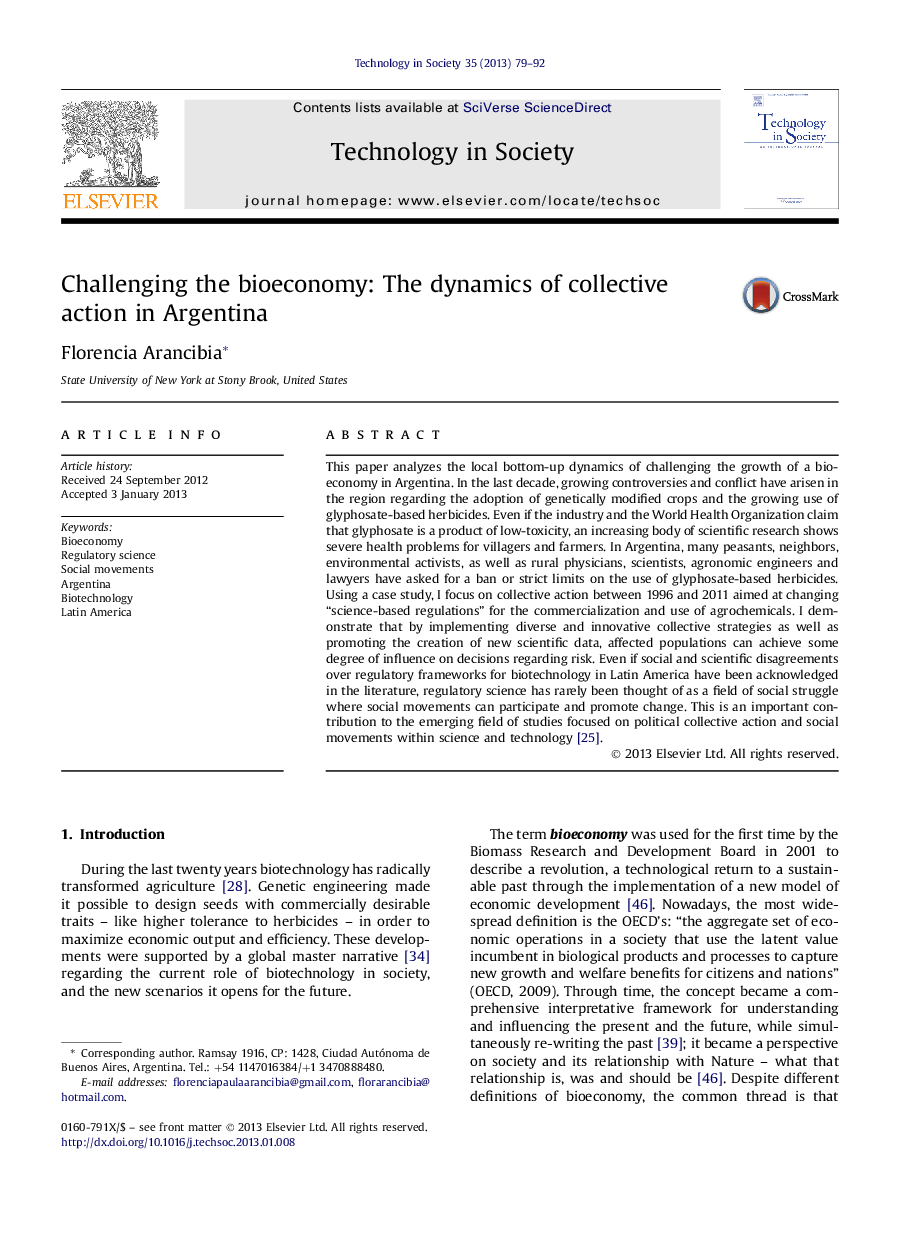| Article ID | Journal | Published Year | Pages | File Type |
|---|---|---|---|---|
| 375257 | Technology in Society | 2013 | 14 Pages |
This paper analyzes the local bottom-up dynamics of challenging the growth of a bioeconomy in Argentina. In the last decade, growing controversies and conflict have arisen in the region regarding the adoption of genetically modified crops and the growing use of glyphosate-based herbicides. Even if the industry and the World Health Organization claim that glyphosate is a product of low-toxicity, an increasing body of scientific research shows severe health problems for villagers and farmers. In Argentina, many peasants, neighbors, environmental activists, as well as rural physicians, scientists, agronomic engineers and lawyers have asked for a ban or strict limits on the use of glyphosate-based herbicides. Using a case study, I focus on collective action between 1996 and 2011 aimed at changing “science-based regulations” for the commercialization and use of agrochemicals. I demonstrate that by implementing diverse and innovative collective strategies as well as promoting the creation of new scientific data, affected populations can achieve some degree of influence on decisions regarding risk. Even if social and scientific disagreements over regulatory frameworks for biotechnology in Latin America have been acknowledged in the literature, regulatory science has rarely been thought of as a field of social struggle where social movements can participate and promote change. This is an important contribution to the emerging field of studies focused on political collective action and social movements within science and technology [25].
► I focus on conflict on GM crops and the growing use of agrochemicals in Argentina. ► In order to limit agrochemicals use new social movements emerged in rural provinces. ► Influencing “science-based regulations” required new repertoires of struggle. ► The production of new scientific data was complemented with grassroots mobilization. ► Some provinces showed regulatory changes addressing social movements' claims.
